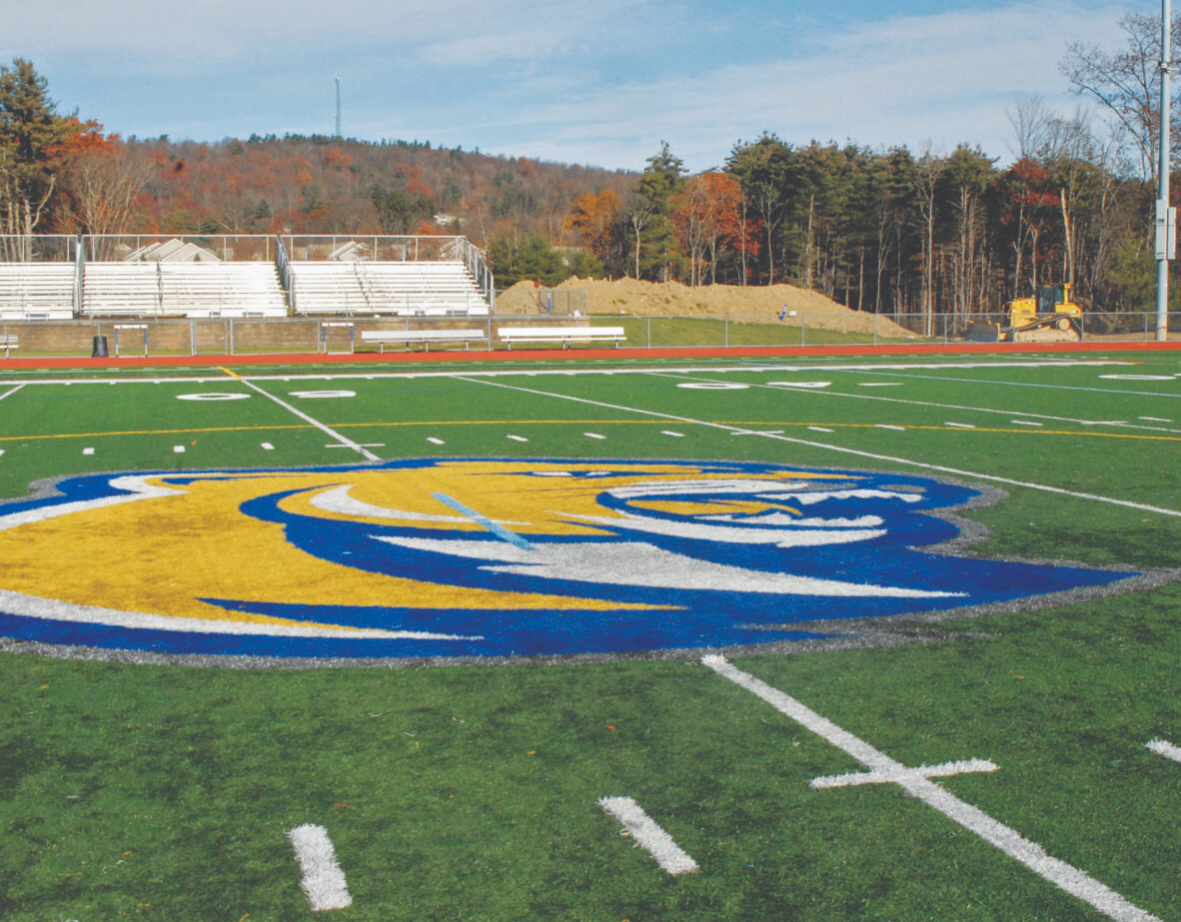Division 1 Track Athlete Tesia Thomas from Penn State University is one of over 450,000 student-athletes who took advantage of the opportunity to make money from her sport as a result of changes to NCAA laws, which became effective July 11.
Thomas has a “Name, Image and Likeness” deal, which, under NCAA rules, enables her to profit from her image as an athlete. More importantly, perhaps, the deal gives her a real-life education about business and sales.
Likewise, Misericordia’s James McBride, a wide receiver on the football team, also has an NIL deal. His is with Lvla, an athletic merchandise brand. Even though the Cougars play in Division III, approximately a dozen Misericordia athletes have NIL deals, according to Chuck Edkins, director of athletics.
McBride said Lvla required him to supply photos, which they print on the front of clothing items with his first and last name, in multiple designs, including the school’s colors. His last name and jersey number are printed on the back of the items.
“I think they look amazing and I love it,” McBride said. “It was one of the best decisions I made.”
The deal, which McBride inked in 2022, provides him with respectable profits for a student-athlete.
“[Each item] ranges between $40 to $80, depending on the sales,” he said.
Thomas’ most recent NIL deal involves a clothing brand that works with Penn State University Athletic to provide simple but eye-appealing designs. Items range from crewneck t-shirts to sweatshirts all featuring “Thomas” on the back.
“They [Penn State University Athletic] manufacture attire with your last name and/or number on it and helps market you,” Thomas said. “You get a specialized link that fans, friends, and family can go to to purchase your personalized attire.”
Thomas’ deal is based on a percentage of sales so the more people buy the attire, the more she makes.
Thomas found her deal through an app called Opendorse, which provides access to businesses looking to partner with athletes, as well as athletes looking to strengthen their NIL exposure.
Her parents support her decision and have bought some clothing items themselves.
Although McBride’s deal isn’t as big as Thomas’ has the potential to be, the impact on his future is, he said, adding the deal taught him to better manage his money.
“This deal has impacted my life because it is setting me up for the future on being a good sales person and teaching me how to move my money well,” he said.
The Penn State University athletic program is considered elite as the school is classified as Division I. While DI athletes typically compete at a higher level and are therefore attractive to businesses who offer NIL deals, DIII athletes like McBride, who compete for enjoyment rather than future careers, maintain attractiveness to businesses seeking deals.
When it comes to deciding which NIL deals athletes should pursue and accept, Thomas said athletes should take a step back and see how the arrangement can benefit them in the long run.
“Do what you genuinely enjoy,” Thomas advises. “There are so many opportunities out there, you do not have to just settle for anything. Look for and do NIL deals that interest you, or help you to step out of your comfort zone and help strengthen you in areas you know are going to help mold you into a better and stronger person and athlete.”
Similarly, McBride said athletes should focus on their goals, not the cash.
“Don’t go chasing it,” he said. “At the end of the day, if they believe you are a fit for their business, they will find you and come to you, and once you get one, don’t get caught up in the money. Focus on your goal that you have ahead of you, academically and athletically.”
Edkins also views NIL deals as a step toward a promising financial future for Division III athletes.
“It’s a positive step for the student-athlete and their experience,” said Edkins, who helps to carefully vet the deals his athletes get.
“We then do some research on that company or organization to make sure they’re on the up and up,” he added. “So the student-athlete is not being exploited.”
Edkins added athletes need to be cautious and thoroughly investigate all NIL deal proposals.
“I think the most important thing is research, the company or individual that wants to partner with you, make sure that you have an understanding,” he said.
McBride says that, overall, the NIL deal experience keeps him dreaming big.
“My plans are to have a shot at the league and play ball,” he said.
He plans to use his sports communication major to provide a career backup if that falls through; however, he feels like a winner right now.
“The feeling of having an NIL deal is just as special because I feel just like a Division I athlete with a deal,” McBride said.

